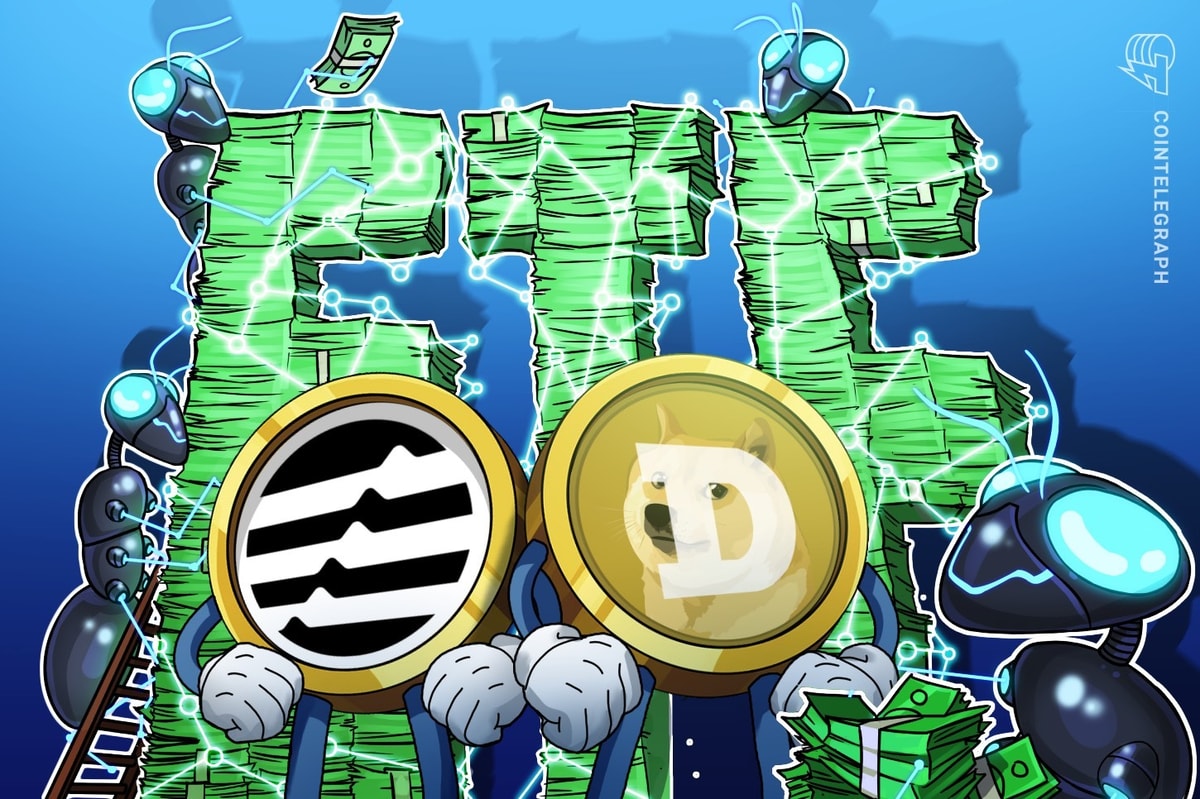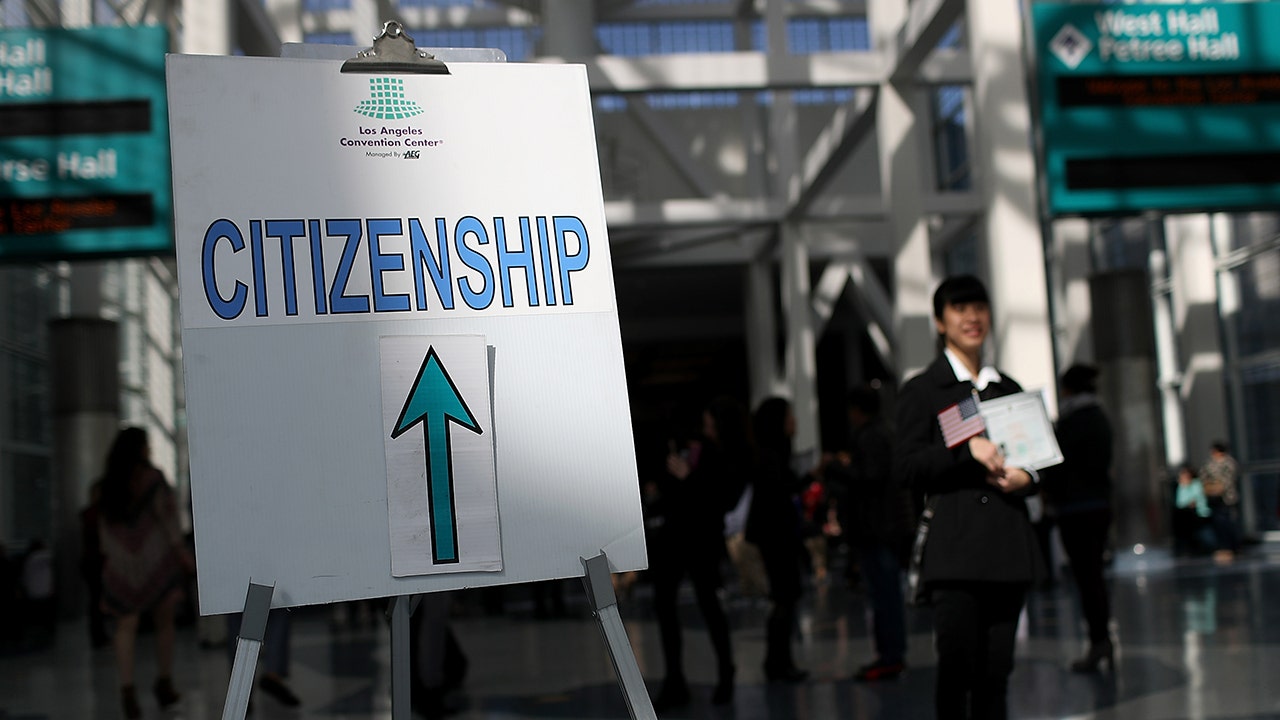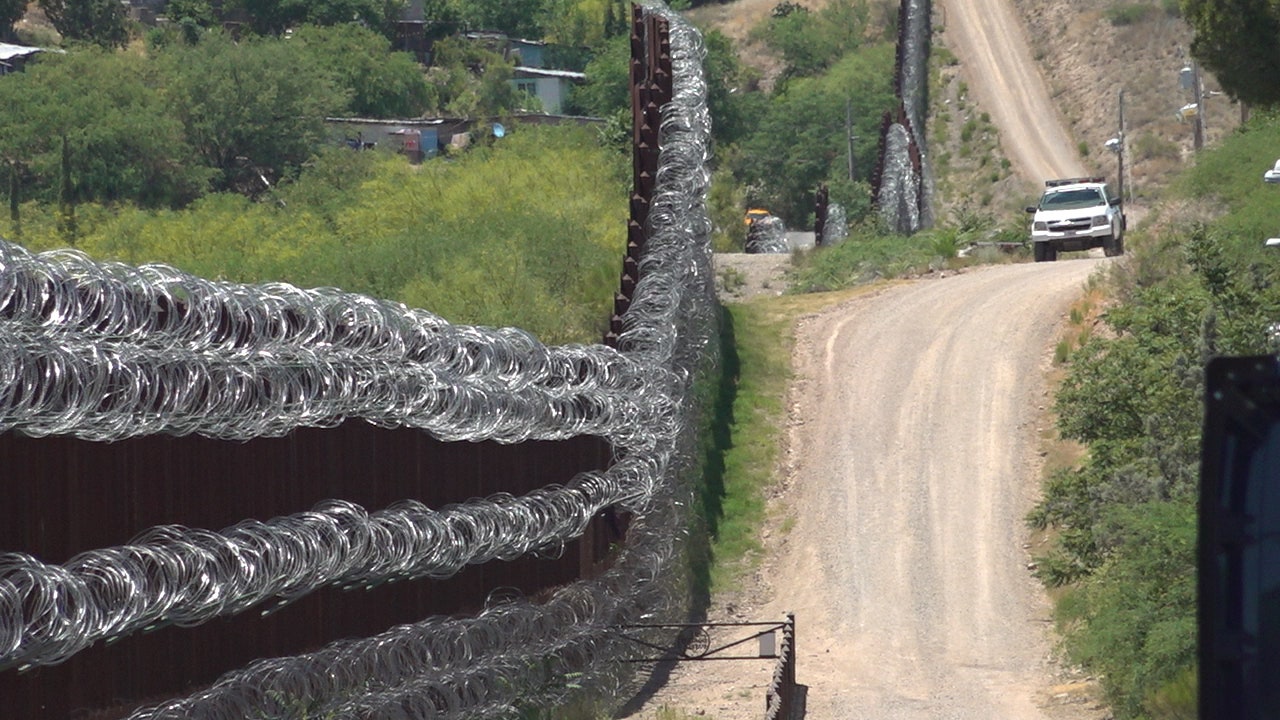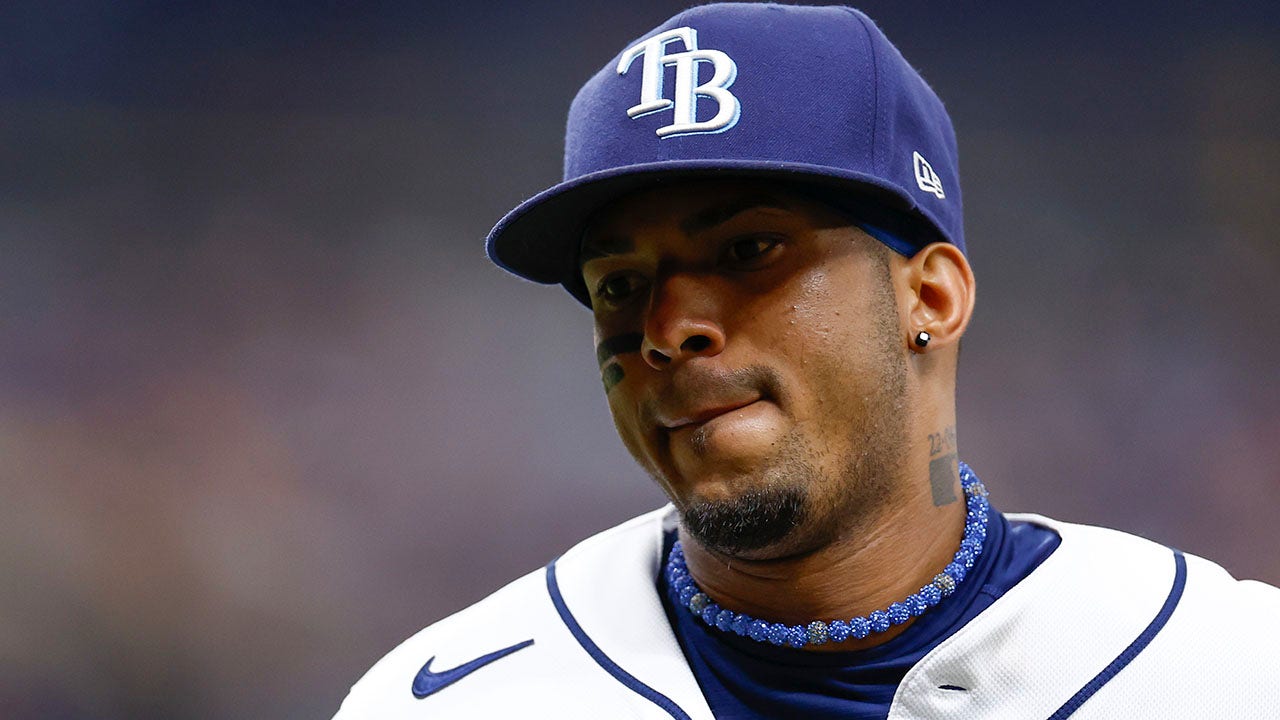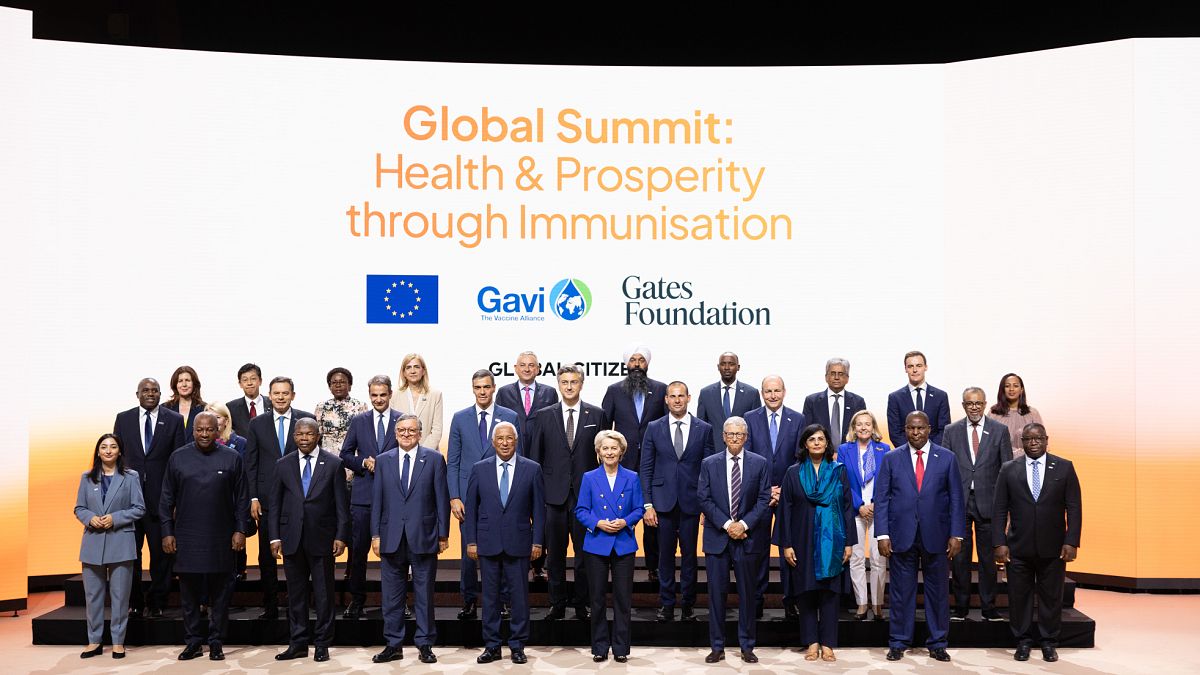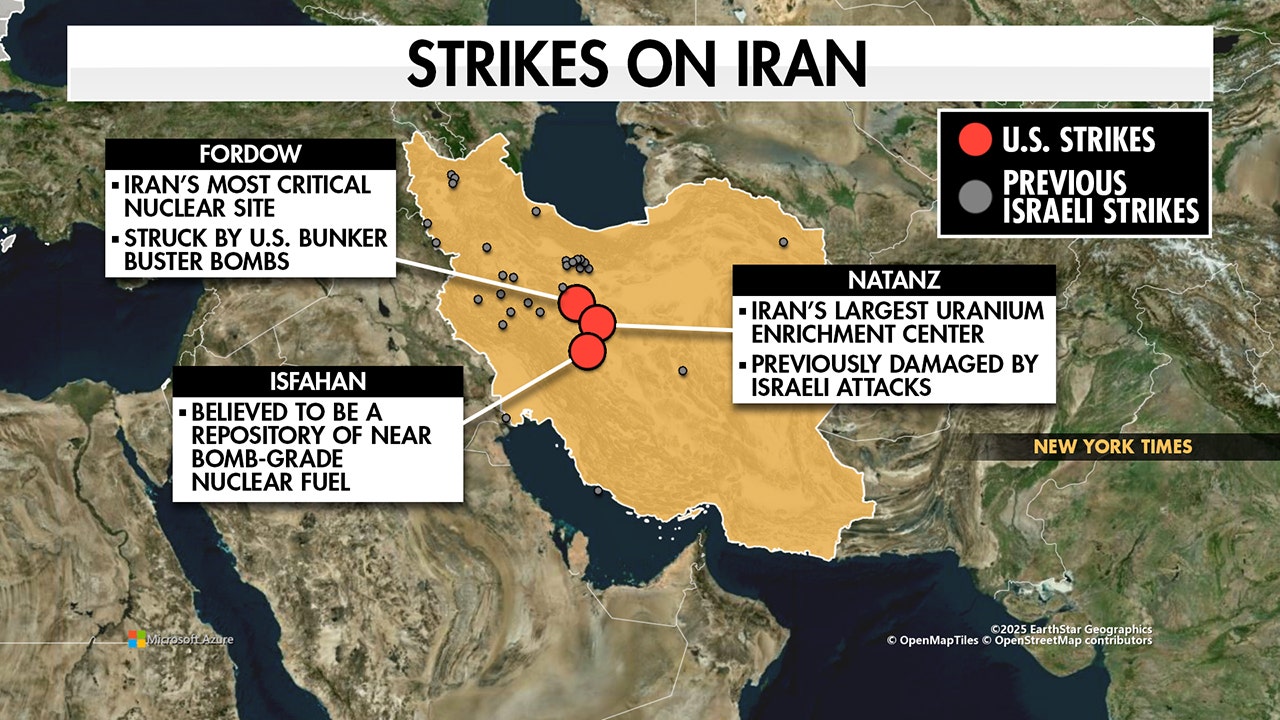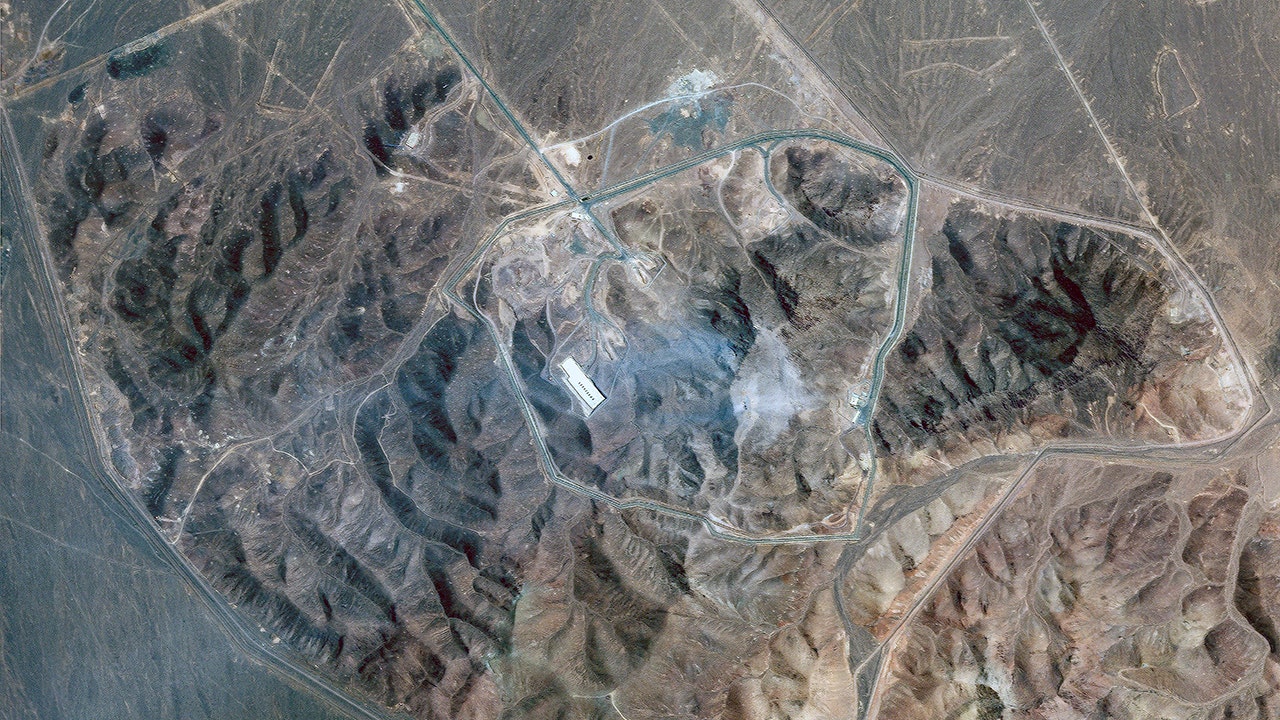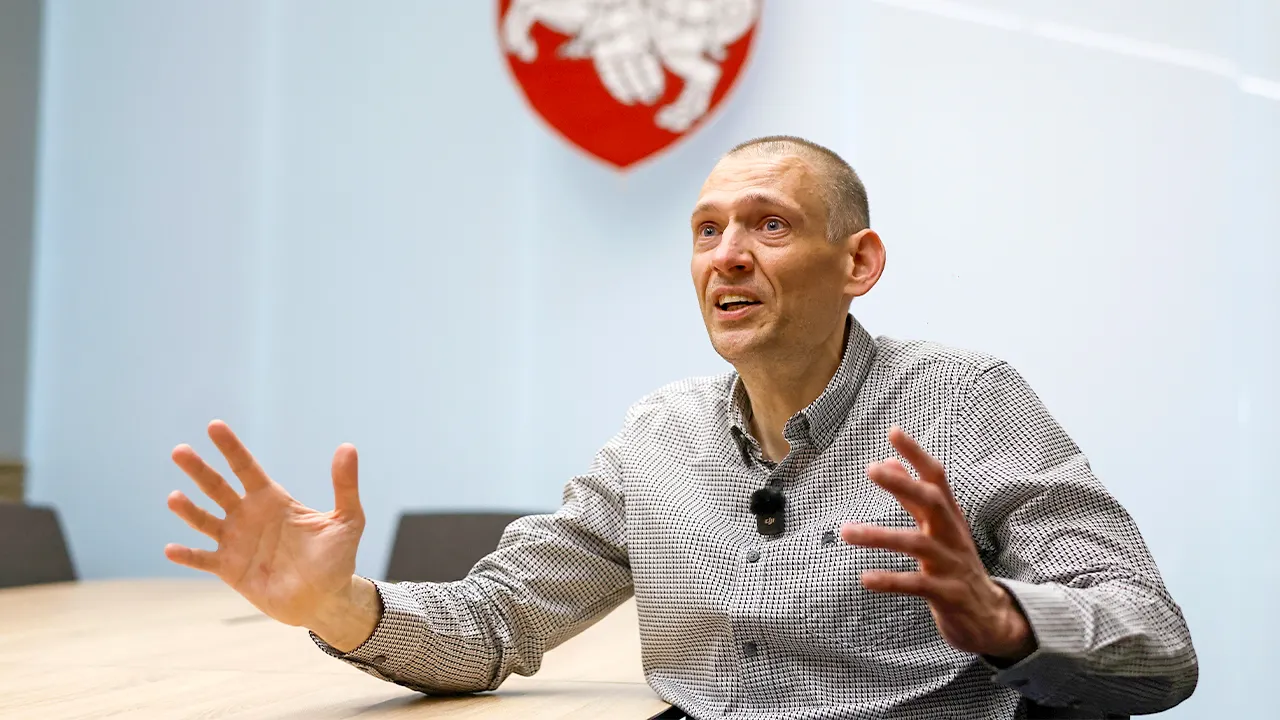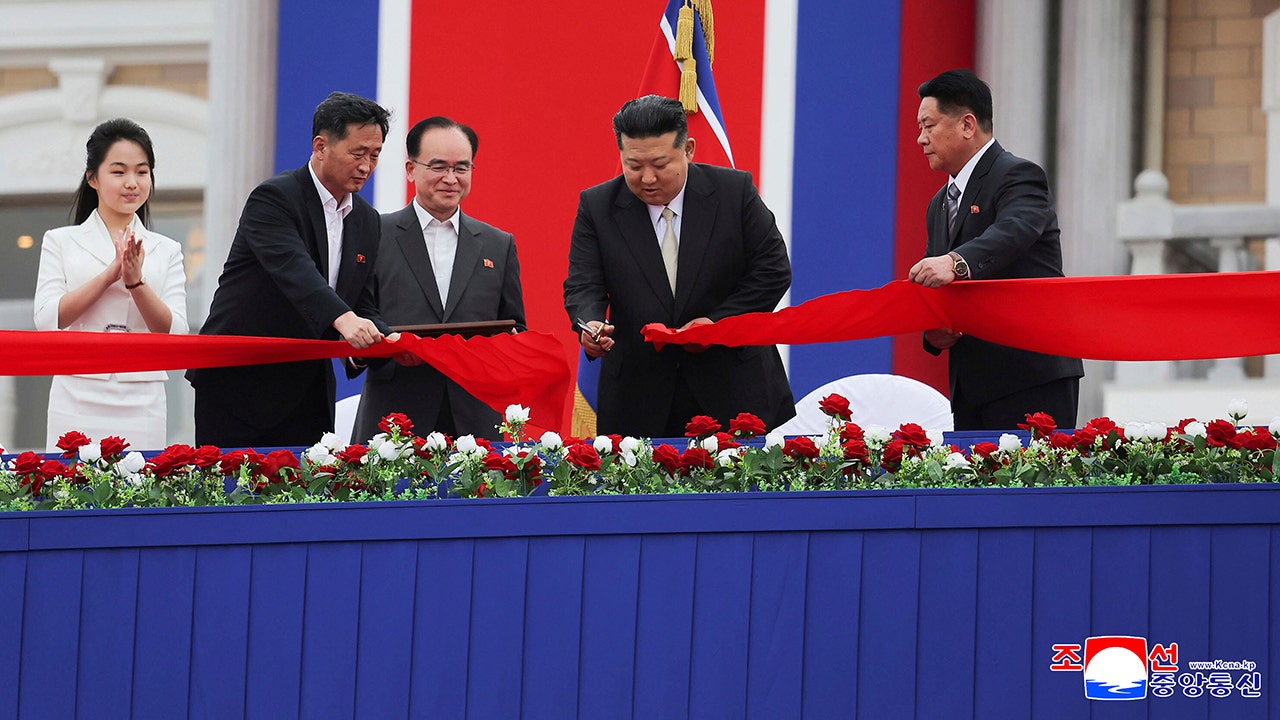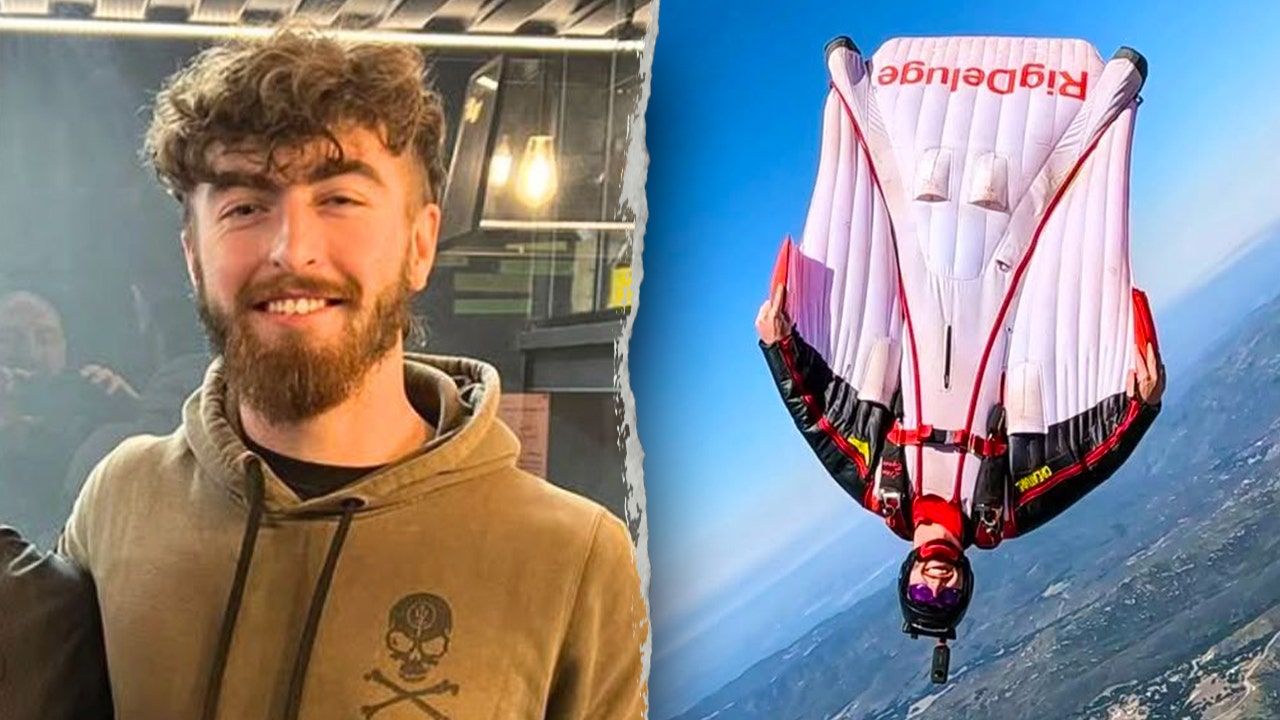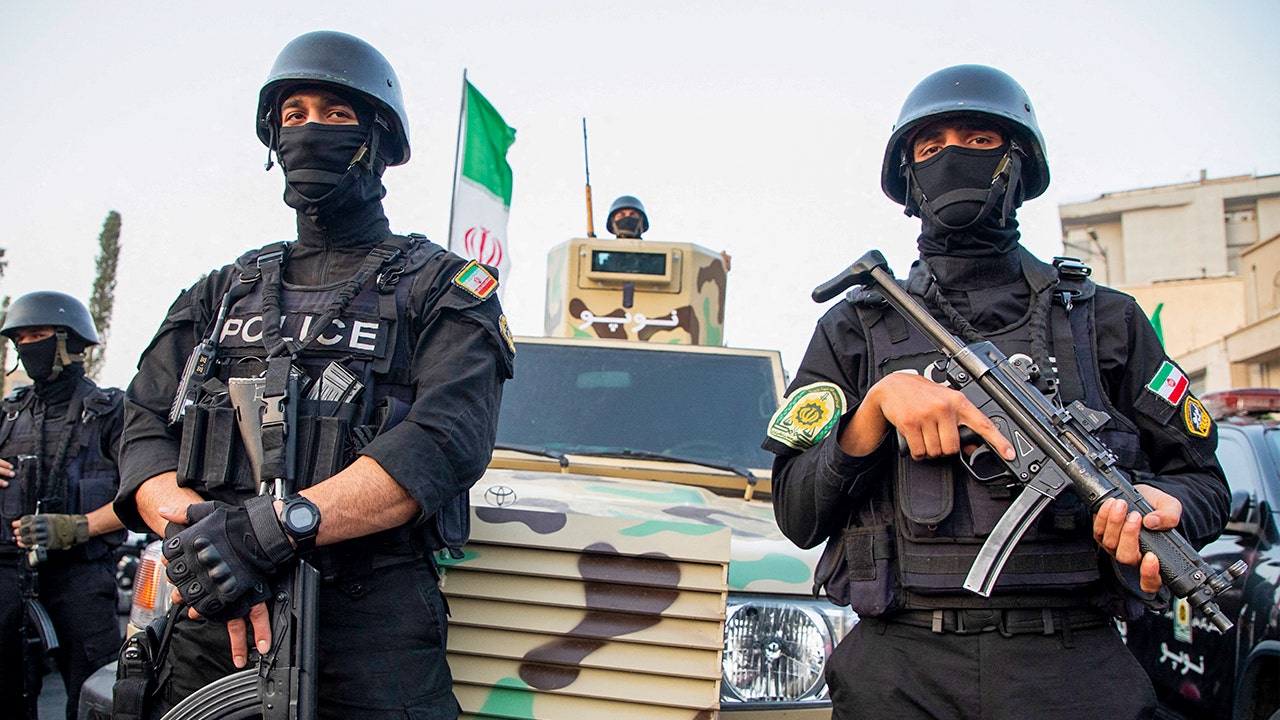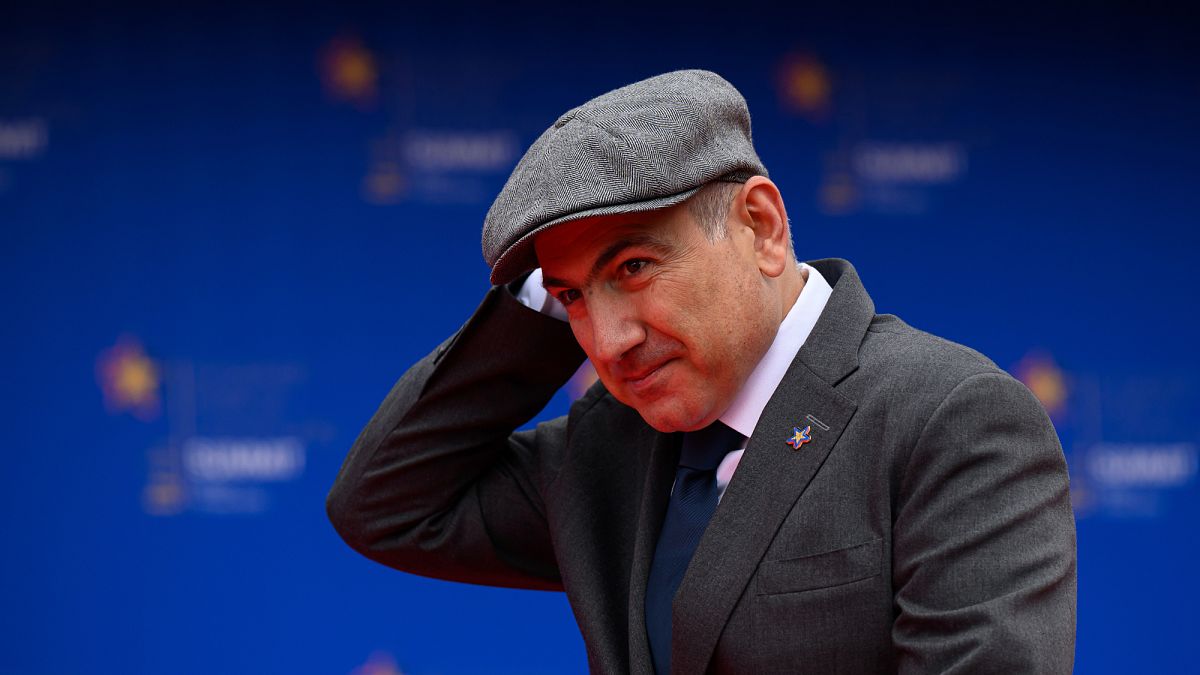At a high-level pledging event in Brussels on Thursday, the GAVI Vaccine Alliance rallied international donors to fund its next five-year programme.
So far, GAVI has secured over €7.7 billion – still short of its overall target, though more pledges are expected in the coming weeks.
“What’s at stake is the lives of millions and millions of children. And I think there is nothing more important in the world than the lives of millions of children,” GAVI Chairman José Manuel Barroso told Euronews in an interview.
“It makes a difference if they get immunisation, if they get vaccines or not. Because if they don’t get them, they will die from perfectly preventable diseases,” he added.
GAVI, launched in 2000, is a global health partnership aimed at improving vaccine access in the world’s poorest countries.
Since its inception, the alliance has helped vaccinate over one billion children and is estimated to have saved 19 million lives. Now, it aims to reach 500 million more by 2030.
Supporters say vaccine investments offer a strong return – up to $54 for every dollar spent – through reduced healthcare costs and increased economic productivity.
Europe Leads the Charge
European nations were among the most prominent backers at the Brussels event.
Spain’s Prime Minister Pedro Sánchez pledged €130 million, 30% more than the country’s previous commitment. “Spain is ready to take a step forward when others are backing down,” he said.
The European Commission also reaffirmed its support with a €360 million pledge, bringing the total “Team Europe” commitment — combining EU institutions and member states — to more than €2 billion.
Commission President Ursula von der Leyen welcomed GAVI and UNICEF’s commitment to procure up to 20% of vaccines in their programmes from African producers.
“Together we can ensure that vaccines are not only available to Africa, but increasingly made in Africa,” she said at the event, mentioning that Europe is also the largest contributor to the Africa vaccine manufacturing accelerator.
The United Kingdom emerged as the single largest donor, committing £1.25 billion. “Where others are stepping back, we in the United Kingdom are stepping up,” said UK Foreign Secretary David Lammy. “This will help immunise over 60 million children, saving an estimated 1.25 million lives.”
United States pulls out
In a stark contrast to past years, the United States — historically a major donor to GAVI — announced it would no longer provide funding, as part of a broader reduction in international aid under President Donald Trump’s administration.
“There is much I admire about GAVI,” said US Health Secretary Robert F. Kennedy Jr. in a video message. “Unfortunately, in its zeal to promote universal vaccination, it has neglected the key issue of vaccine safety.”
Kennedy, a known vaccine sceptic, specifically raised concerns about the DTP vaccine (diphtheria, tetanus, and pertussis), a widely used childhood immunisation.
GAVI responded by reaffirming its “full confidence” in the DTP vaccine, citing decades of rigorous safety monitoring.
Barroso, in a separate interview prior to Kennedy’s statement, maintained an optimistic tone about future collaboration with the US administration. However, he also denounced vaccine disinformation campaigns fuelled by conspiracy theories and social media. “People, sometimes, like to accept these kinds of fantasies,” he said.
As Barroso concluded, the global data on vaccination impact is indisputable: countries with sustained immunisation programmes have seen drastically lower child mortality rates.
Preventable diseases like polio, once widespread, have nearly disappeared in these regions. “Vaccines save lives and that’s hard evidence,” he said.
Read the full article here


